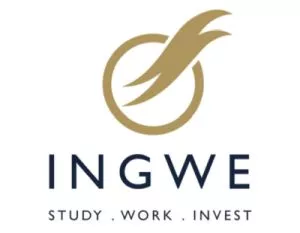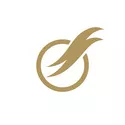- within Immigration topic(s)
- with readers working within the Media & Information industries
- within Tax topic(s)
Out of the hundreds of daily inquiries we receive at Ingwe regarding the Start-up Visa program, one question pops up more than others: "Do I really need a Designated Organization (DO)?" Let's break down who DOs are, why they're vital to this program, and what you need to know about working with them. Whether you're just starting out or nearly ready to apply, understanding DOs can set you on the path to success.
At INGWE, we are experts in the Canada Startup Visa. We will guide and support you throughout the endorsement letter or Letter of Support process, as well as the entire immigration journey, including work visas and permanent residencies. Connect with us for a personalized assessment, click here.
Who are Designated Organizations (DOs) and What Role Do They Play in the SUV program?
DOs are key players in Canada's Start-up Visa program. These are approved venture capital firms, angel investor groups, or business incubators that assess and support promising business ideas from foreign entrepreneurs. If a DO sees potential in a startup idea, they'll issue a "Letter of Support" — a mandatory document for the Start-up Visa application. Without this endorsement, it's impossible to apply for the visa, making DOs the gatekeepers of the program.
Why Designated Organizations Are Essential for the Start-Up Visa?
The Start-up Visa program is built on the idea of attracting innovative entrepreneurs who can contribute to Canada's economy. By mandating DOs as part of the application process, Canada ensures that only ideas with real potential gain entry. Each DO specialize in specific industries, so entrepreneurs need to identify DOs that align with their venture. This connection helps applicants strengthen their business plans, gain access to resources, and navigate Canada's startup ecosystem.
At INGWE, we are experts in the Canada Startup Visa. We will guide and support you throughout the endorsement letter or Letter of Support process, as well as the entire immigration journey, including work visas and permanent residencies. Connect with us for a personalized assessment, click here.
Priority versus Non-Priority Designated Organizations
In Canada's current immigration system, not all DOs operate on the same level. As of 2024, Immigration, Refugees, and Citizenship Canada (IRCC) has labeled certain well-established incubators, accelerators, and venture capital firms as Priority Organizations. These organizations enjoy a higher level of trust. Applications they sponsor benefit from faster processing, allowing for expedited evaluations. The government often applies less rigorous scrutiny to their endorsements, relying on the organization's judgment due to their proven expertise.
Non-priority Designated Organizations (DOs), on the other hand, undergo a longer processing timeline and are likely subject to greater inspection.
Knowing the difference can help applicants set realistic expectations on processing times and plan accordingly. In our practice, we have recently seen groups collaborating with priority organizations receiving their Acknowledgement of Receipt (AOR) in approximately 6 months, compared to an 18-month timeframe for non-priority groups.
At INGWE, we are experts in the Canada Startup Visa. We will guide and support you throughout the endorsement letter or Letter of Support process, as well as the entire immigration journey, including work visas and permanent residencies. Connect with us for a personalized assessment, click here.
How Do Designated Organizations Work?
In order to secure Designated Organization support, applicants must first pitch their startup ideas to a DO. Each organization has its own criteria and process, but the general steps include submitting a business proposal, attending interviews or cohorts, and sometimes participating in a presentation or pitch competition. Once approved, the DO will issue a Letter of Support, which acts as the applicant's green light for the Start-up Visa process.
Fees and Costs of Working with Designated Organizations
Application and Processing Fees: Many DOs have fees associated with their application processes, which can vary widely depending on the type of organization. Business incubators, for instance, may charge for mentorship or program fees. In contrast, angel investors or venture capitals might also require equity in the business or additional requirements. It's essential to review each DO's fee structure upfront to avoid unexpected costs.
Investment Requirements:
* Venture capital funds must invest a minimum of $200,000CAD.
* Angel investor groups must invest at least $75,000CAD.
* Business incubators don't provide funding but must accept the applicant into their program.
Additional Costs to Consider: Beyond DO fees, applicants should budget for settlement funds as well as legal, administrative, and immigration processing fees associated with the Start-up Visa application. If mentorship or specific training is required by the DO, these expenses should be accounted for as well. This investment can quickly add up, so a clear budget will help prevent financial strain during the process.
At INGWE, we are experts in the Canada Startup Visa. We will guide and support you throughout the endorsement letter or Letter of Support process, as well as the entire immigration journey, including work visas and permanent residencies. Connect with us for a personalized assessment, click here.
Changes in the Start-Up Visa Process as of April
As of April 2024, the introduction of an annual cap on group applications has intensified competition within the program, contributing to an increase in fees. Each Designated Organization (DO) is now limited to accepting a maximum of 10 groups per year. As previously discussed, costs per applicant can vary widely based on factors such as the type of Designated Organization (DO), the size of the applicant group, the business concept, the startup's development stage, and other specific considerations. While observed fees typically range from CAD $150,000 to $250,000 since the cap's implementation, it's not uncommon to encounter lower or even higher fees based on individual circumstances.
Upcoming Changes Due to the Current Immigration Climate
In response to Canada's evolving immigration landscape, additional changes to Designated Organization (DO) requirements and Start-up Visa eligibility criteria may be forthcoming. As these requirements develop, applicants could encounter stricter eligibility standards and a heightened emphasis on innovation. While this may limit the number of entrants, it is also likely to improve the quality and viability of the startups that are accepted. With thorough preparation and the right guidance, we are hoping that qualified applicants will continue to find valuable opportunities within the program.
In conclusion, navigating the Start-up Visa program can be challenging, especially with evolving requirements and a complex application process. Designated Organizations play a pivotal role, as they serve as the initial caretakers of the Canadian startup program. Whether you're aiming for a priority DO to fast-track your application or exploring other options, understanding the role and requirements of these organizations is crucial. This knowledge can make a significant difference in how you approach and succeed in the program, allowing you to join Canada's vibrant entrepreneurial community with confidence.
The content of this article is intended to provide a general guide to the subject matter. Specialist advice should be sought about your specific circumstances.


